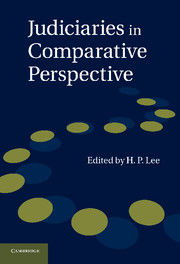Book contents
- Frontmatter
- Contents
- Contributors
- Foreword
- Preface
- Table of cases
- Table of statutes
- Part I
- Part II
- Part III
- 8 Judges’ freedom of speech
- 9 Judges and free speech in Canada
- 10 Judges and free speech in New Zealand
- 11 The judiciary and freedom of speech in South Africa
- 12 Judges and free speech in the United Kingdom
- 13 The criticism and speech of judges in the United States
- Part IV
- Part V
- Part VI
- Index
- References
11 - The judiciary and freedom of speech in South Africa
from Part III
Published online by Cambridge University Press: 07 September 2011
- Frontmatter
- Contents
- Contributors
- Foreword
- Preface
- Table of cases
- Table of statutes
- Part I
- Part II
- Part III
- 8 Judges’ freedom of speech
- 9 Judges and free speech in Canada
- 10 Judges and free speech in New Zealand
- 11 The judiciary and freedom of speech in South Africa
- 12 Judges and free speech in the United Kingdom
- 13 The criticism and speech of judges in the United States
- Part IV
- Part V
- Part VI
- Index
- References
Summary
What limits are placed on speech about the judiciary in South Africa and what are the limits on speech by the judiciary? Like the other South African chapters in this volume, in answering these questions this chapter contrasts the old and the new orders. Under the ancien régime, a legal system premised on a racially exclusive variant of Westminster constitutionalism, the South African judiciary was shielded from much of the adverse criticism that its service to such a system would otherwise have invoked. The judiciary was a beneficiary of statutory and executive measures designed to stifle opposition and shore up an illegitimate state edifice. On occasion though, the judges took on a more active role in silencing their critics by means of the contempt power. The result, in the estimation of one of the most perspicacious observers of this period, was that
the right to address oneself freely to all aspects of the administration of justice has . . . become essentially a ‘fugitive and cloistered virtue’ in South Africa, resulting in the situation today [1978] that substantial pockets of decision-making in that vast administration are untouched by meaningful comment, dissent and scrutiny.
On the other side of the coin, the judiciary itself assiduously followed Westminster conventions of aloofness from political controversy.
- Type
- Chapter
- Information
- Judiciaries in Comparative Perspective , pp. 217 - 236Publisher: Cambridge University PressPrint publication year: 2011



